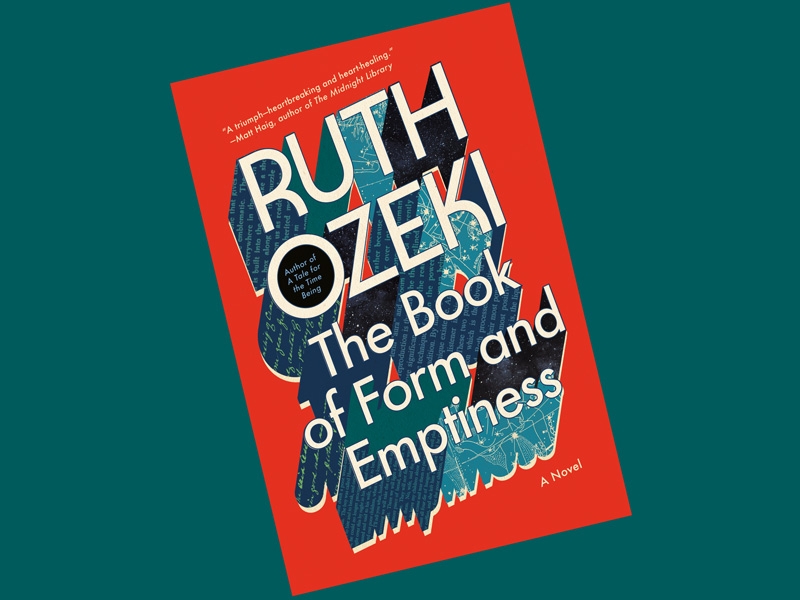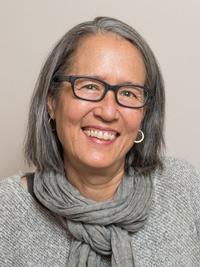Pulitzer Prize-winning poet Jericho Brown, who will be on campus Thursday, Sept. 29, for a Presidential Colloquium, shares his thoughts on the relevance and influence of Emily Dickinson.

The Grécourt Gate welcomes your submissions. To discuss a story idea of interest to the Smith community, contact Barbara Solow at 413-585-2171 or send email to bsolow@smith.edu.
Smith eDigest
The Smith eDigest is sent to all campus email accounts on Tuesday and Thursday each week during the academic year and on Tuesdays during the summer. Items for eDigest are limited to official Smith business and must be submitted by 5 p.m. on the day prior to the next edition’s distribution.
Monday, Sept. 5: Author Talk with Prof. Ruth Ozeki

For Jane Stangl, dean of the first-year class, helping to select a book for the annual Smith Reads program is always a pleasure. But this year, she says, there is an added element of delight.
This summer’s reading choice for first-year students is a new novel by a Smith faculty member: “The Book of Form and Emptiness” by professor Ruth Ozeki ’80.
“In Ruth, we have a true literary star among us,” Stangl says. “She is a prize-winning author, and as a Smith grad, has some compelling stories of her own, some of which she may share with students, along with thoughts about her latest work.”
Ozeki’s novel was awarded the 2022 Women’s Prize for Fiction for addressing themes ranging from the power of the written word to the pain of mental illness with “warmth, intelligence, humor and poignancy,” in the words of the judges.
The story, which is narrated by a book, follows 14-year-old Benny Oh and his mother, as they cope with the death of Benny’s father.
 Ozeki—who is professor of English language and literature and Smith’s Grace Jarcho Ross ’33 Professor of Humanities—will hold a conversation about her novel on Monday, Sept. 5, at 3 p.m. in John M. Greene Hall.
Ozeki—who is professor of English language and literature and Smith’s Grace Jarcho Ross ’33 Professor of Humanities—will hold a conversation about her novel on Monday, Sept. 5, at 3 p.m. in John M. Greene Hall.
Smith Reads will also sponsor book discussions for new students with faculty facilitators on Thursday, Aug. 25, and small-group discussions in student houses on Friday, Sept. 2.
We spoke with Stangl and three other members of this year’s Smith Reads selection committee: Andrew Berke, associate professor of chemistry; Andy Rotman, Sydenham Clark Parsons Professor and professor of religion, Buddhist studies and South Asian studies; and Julianne Ohotnicky, dean of students and associate dean of the college. Here’s what they had to say about the summer reading program.
What do you find most valuable about Smith Reads?
Julianne Ohotnicky: “The shared student and faculty experience offers a wonderful opportunity for community building and a brilliant introduction to our Smith academic community. New students come away with an amazing read and a wonderful conversation with the author, as well as a chance to discuss their impressions of this book with a Smith faculty member and a smaller group of students.”
Andrew Berke: “I personally have discovered books and authors and worlds of reading I didn’t know about before. Some of my favorite books have been chosen for, or on the [possibles] list for Smith Reads, and I think my students have the same experience. When I’ve referred back to some of those books in my classes, I can see the knowing nods. Selection committee members have perspectives covering different disciplines and worlds on the Smith campus. The program has benefited from that kind of diversity of engagement.”
How does Ruth Ozeki’s novel help students address the challenges of our present moment?
Andy Rotman: “It’s a book that helps us understand psychology and the limits of psychology; schooling and the limits of schooling; family and objects and the limits of family and objects. It’s a book that challenges us to understand the complex ways that humans engage with the current world, and to withhold judgment until we understand more. That’s a great lesson for students.”
Jane Stangl: “At this moment in our social and cultural history, students are very aware of the self. This story, while it starts with a tragedy, is about the growth that emerges. I think Ruth speaks to what goes on inside our heads eloquently. She understands the internal mechanics of our thought process and relays that beautifully.”
How will students benefit from participating in Smith Reads?
Stangl: “One of the goals is for students to have a shared interaction across campus. So, making a friend, finding a like-minded housemate, being introduced to a faculty member who teaches a class they would not have thought about taking.”
Rotman: “Smith doesn’t have a core curriculum, with everyone taking the same classes. This program is an exception that creates a common touchstone and a bonding experience. When I discuss a [Smith] Reads book with a group of students, it’s their first class at Smith! It’s a privilege to be their first teacher, and it’s fun to make that experience special.”